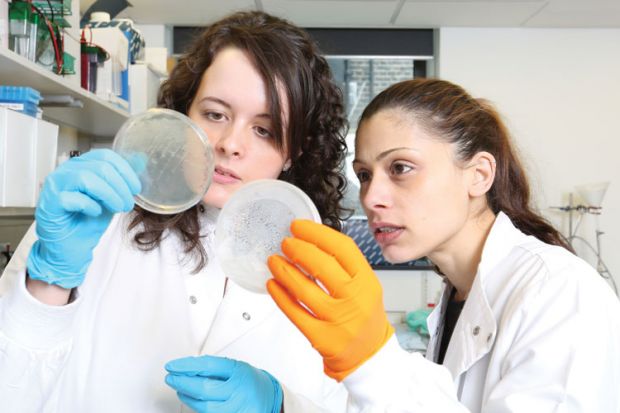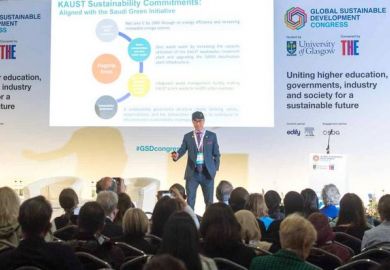Source: Getty
A new scheme has been launched to help stem leaks in the “pipeline” bringing female researchers to the top levels of science.
The Sustain pilot programme, supported by several medical research funders, will offer tailored training and support to female scientists who have secured a career development award or fellowship.
A cohort of 20 women will take part in the upcoming academic year with the hope that they can become the research leaders of the future. Sustain is the creation of the Academy of Medical Sciences and is funded by the AMS, the Medical Research Council, the Royal Society and the Royal College of Physicians.
Susan Wray, professor of physiology at the University of Liverpool and member of the Sustain programme reference group, said that the fact that so few women make it to senior posts indicates that something is wrong in science.
“At the other end of the pipeline, especially in biological sciences, we have a roughly equal number of women [starting courses as undergraduate students]. Indeed, in medicine we have a higher intake of females than blokes, so there is something going on to give us this mismatch” at senior level, she said.
The £140,000 programme will offer workshops, media training, one-to-one mentoring and a peer support network. It is open to women who currently have one of eight fellowships or awards from the MRC, Royal Society or AMS, and in the case of Royal Society fellowship holders is not limited to the biomedical sciences.
Professor Wray said the decision to focus on women with funding already in place was made so that funders could “further support” their investments. “We have identified a group that at this stage in their careers have gone through so many hurdles already. What we are doing is making sure that their career trajectories are what they would want them to be,” she added.
Elizabeth Sapey, a clinician scientist at the University of Birmingham and a former AMS Starter Grant holder, said: “Trying to build a career, deliver high quality science and raise a family can seem daunting. But you are not alone and many of the challenges faced by women in research are shared.”
The 20 participants will be picked at random, but all funders will be represented equally within the cohort. Participants’ progress will be monitored throughout the pilot and beyond to see how well the activities have worked.
Professor Wray said the AMS hopes to expand the scheme to include more women and more funders. She added that the evidence collected during the pilot scheme will be important in helping charities that fund research, for example, make a business case to get involved.
Applications to the Sustain programme close in mid-May.





